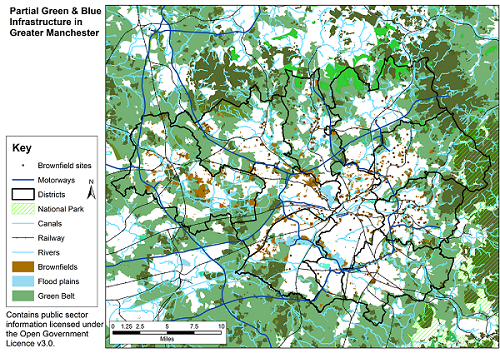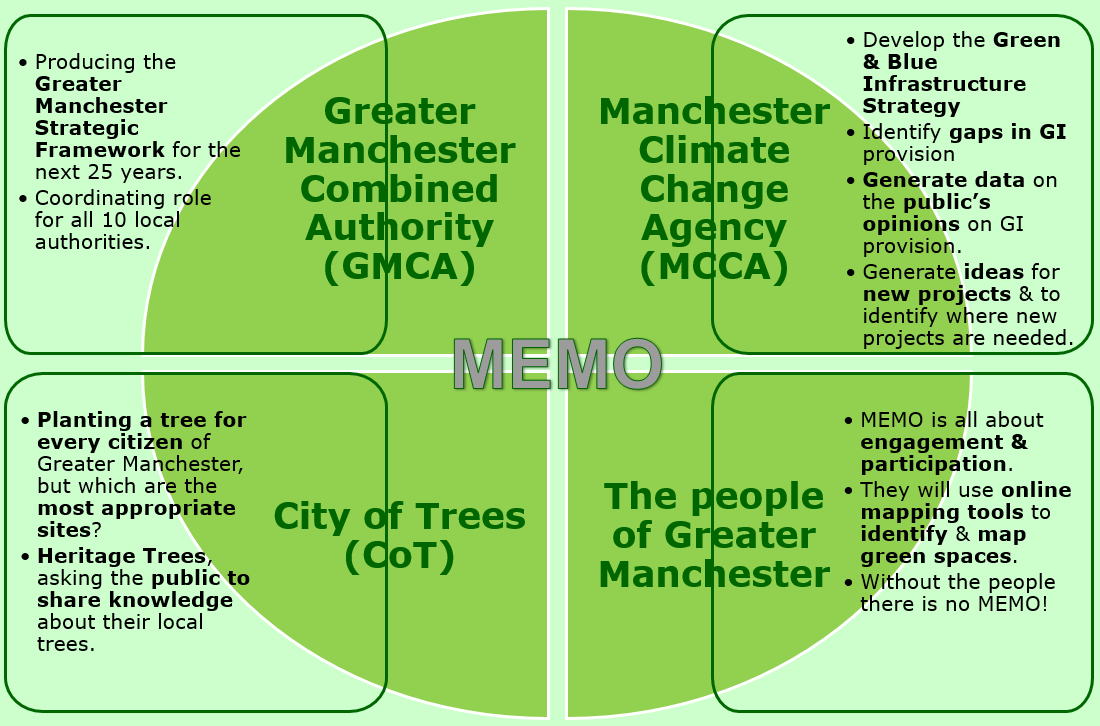Urban greenspace, or ‘green infrastructure’ (GI) provides vital socio-economic and environmental services in urban areas. This is a core aspect of recent and ongoing research within SEED as GI is now recognised as vital in the creation of sustainable and liveable cities.
The MEMO project will work with stakeholders and citizens to develop a digital tool that shares knowledge by mapping the location of current GI projects, characterising the benefits they provide and identifying areas for innovation, improvement and interventions.
The tool will aim to better communicate the benefits provided by GI, assist urban environmental planning and incentivise new GI projects. As this problem is by no means unique to Greater Manchester, it will be designed so that it is easily replicable in other city-regions.

The project is being led by Prof Richard Kingston & Dr Anna Gilchrist in the Department of Planning & Environmental Management, School of Environment, Education & Development, University of Manchester and is funed by an ESRC Impact Acceleration Account.
